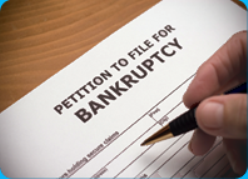 There is a common misconception that if you file bankruptcy you will lose everything you own. The truth is that most people that file bankruptcy don’t lose any of their property. What happens to your property in bankruptcy depends on which Chapter of The Bankruptcy Code you file under and what exemptions are available to you in the state in which you live.
There is a common misconception that if you file bankruptcy you will lose everything you own. The truth is that most people that file bankruptcy don’t lose any of their property. What happens to your property in bankruptcy depends on which Chapter of The Bankruptcy Code you file under and what exemptions are available to you in the state in which you live.
In Chapter 7 bankruptcy debtors list all of their assets, protect those assets with laws called exemptions, and if the debtor has any property that cannot be exempted a trustee will take the property, liquidate it, and pay the proceeds to the creditors. The exemption that is used to protect a house in which the debtor lives is called a homestead exemption. In some states the homestead exemption protects a relatively small portion of a typical home’s value. However, in Texas we have a very strong homestead exemption. Debtors can protect the entire value of their home using this exemption. The only real limitation to this exemption is the number of acres that can be protected by the exemption. As a result, nearly all debtors who file a bankruptcy in Texas are able to keep their home, assuming that they have not defaulted on any debt secured by the property.
In Chapter 13 bankruptcy debtors list all of their assets, protect those assets with exemptions, but the trustee does not liquidate nonexempt property. Chapter 13 bankruptcy cases are funded by future income. Even if there is a nonexempt portion of the value of a debtor’s home, they will not lose the property to the trustee. Debtors who keep their property insured and stay current on their mortgage payments should be able to file bankruptcy and keep their home without fear of the property being seized by creditors.